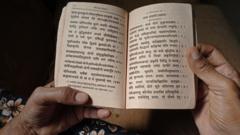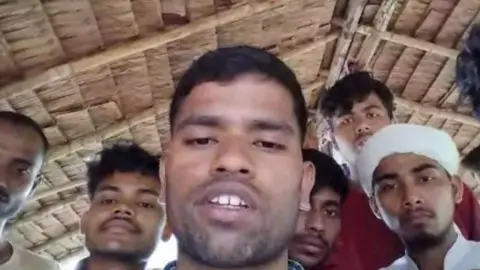In the mid-20th century, when India struggled with severe food shortages, a unique initiative called PL-480 emerged, dramatically transforming the landscape of academic resources in the United States. This program, launched in 1954 under Public Law 480 and known as "Food for Peace," provided a pathway for nations like India to procure U.S. grain using their local currency. This arrangement not only alleviated financial pressures on India but also inadvertently funded the growth of library collections at various U.S. universities.
Ananya Vajpeyi, a visiting professor at Ashoka University in India, vividly recalls her encounter with the South Asia collection at the University of Chicago's Regenstein Library in 1996. "I've spent time in some of the leading South Asia libraries in the world, but nothing matches the endless treasures at the University of Chicago," she shared, highlighting the significance of the university's extensive collection, which includes over 800,000 volumes focusing on South Asia.
The PL-480 program played a crucial role in cultivating this intellectual wealth. With India as one of the largest recipients of U.S. food aid in the 1950s and 1960s, local currency generated from grain purchases was allocated at minimal costs to U.S. universities that sought to enhance their South Asian studies resources. This funding enabled a collection of local books, periodicals, and other media in Indian languages to flourish within the American academic context, leading institutions like the University of Chicago to become major research hubs.
Jim Nye, director of the Digital South Asia Library, pointed out the unforeseen consequences of PL-480, noting its profound impact on collections throughout U.S. universities. Establishing a dedicated team in Delhi in 1959, the initiative set out to source a wide range of academic materials, evolving from primarily government publications to a vast assortment of books and periodicals. By 1968, over two dozen universities benefited from the burgeoning collection, with the University of Chicago being a significant beneficiary.
Despite the successes, challenges in sourcing materials from India's diverse literary landscape were evident. Maureen LP Patterson, a bibliographer of South Asian studies, detailed the complexities of working with various booksellers from different regions, emphasizing the necessity of collaboration among dealers for efficient procurement. While the initiative aimed to build a comprehensive collection of Indian literature, debates surrounding the relevance of acquired materials lingered, as noted by various scholars.
As collections grew, so did concerns regarding the loss of literary resources within India. Todd Michelson-Ambelang, a South Asian studies librarian at the University of Wisconsin–Madison, questioned the implications of programs like PL-480 on knowledge accessibility. He argued that the removal of books could lead to significant gaps in academic resources for researchers in South Asia, forcing them to seek out materials in Western institutions instead.
Today, challenges persist concerning the preservation of these materials. While many books from the PL-480 program remain accessible in South Asian collections, issues such as environmental conditions threaten their longevity. Conversely, Western libraries often benefit from standardized preservation protocols that protect their collections.
With the termination of PL-480 in the 1980s, U.S. libraries bore the financial brunt of sourcing and maintaining their collections. Funding relocated to paying for acquisitions, with institutions like the University of Chicago spending significant resources to sustain their South Asia collections.
Reflecting on the impact of this program, Professor Vajpeyi recognized the transformative role it played in shaping her academic journey. Her experience at the Regenstein Library highlighted the contrasts between Indian libraries and those in the U.S., where resources are typically safer and more accessible. Indeed, one can argue that the unintended academic legacy of India's grain-for-books exchange continues to shape the landscape of South Asian studies in America, all while underscoring the ongoing challenges of access and preservation within India itself.






















